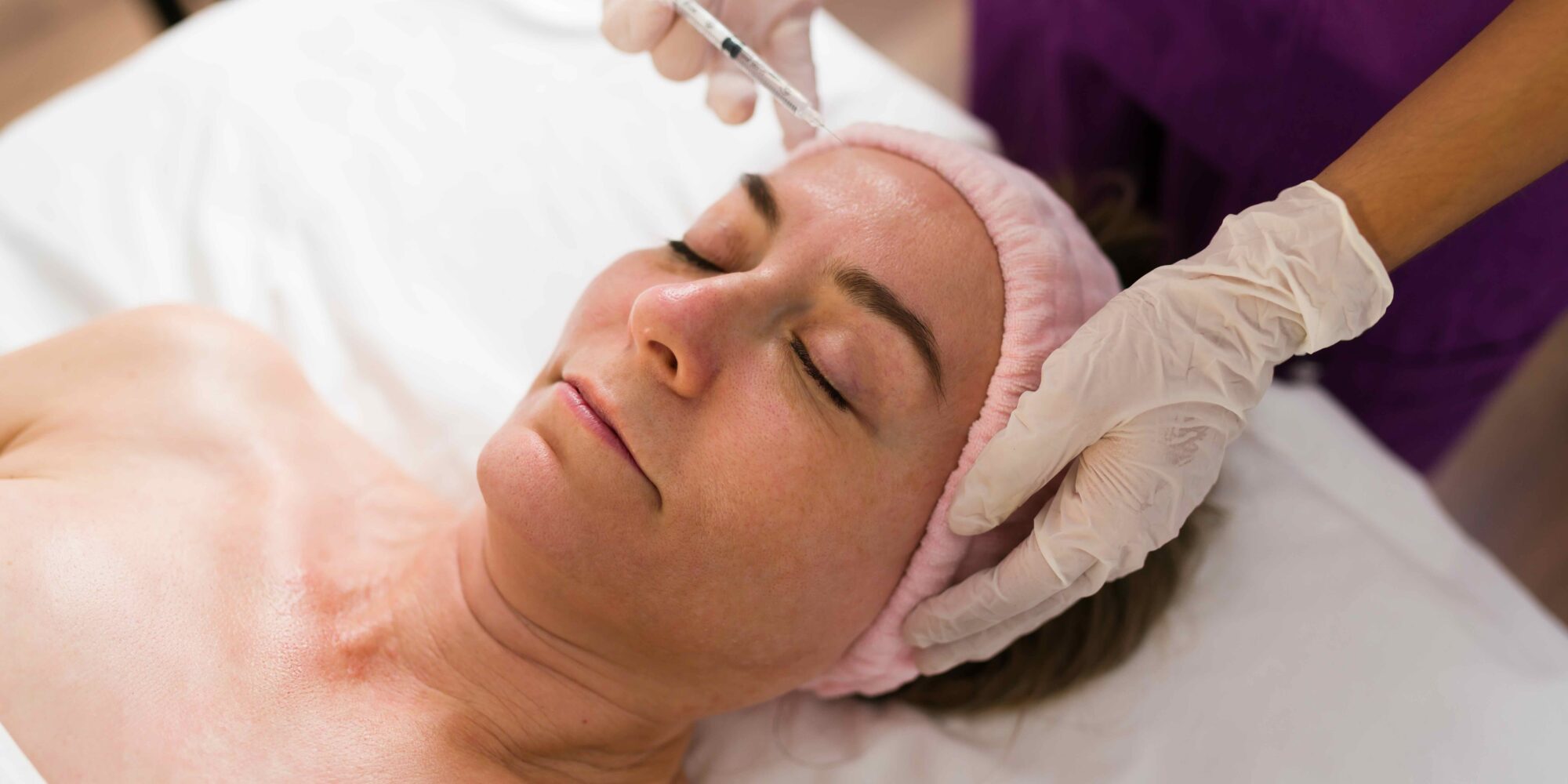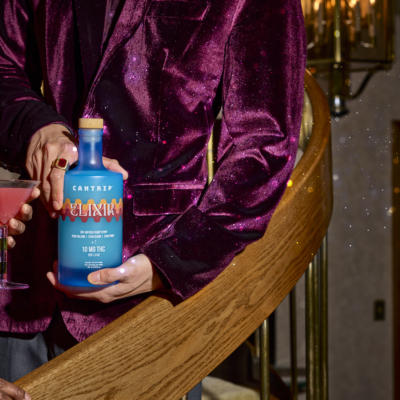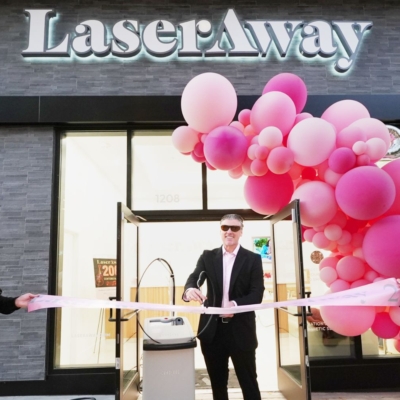
Professional Or Personal?: Entrepreneurs On Whether Beauty Treatments Should Go On The Company Card
Some of the most eye-popping nuggets from the lawsuit filed on March 4 by former Thirteen Lune investors Relevance Ventures and Beauty Generations Fund against Thirteen Lune co-founder Nyakio Grieco, new ownership SNR Capital and others involve Grieco’s spending on the company’s American Express card between June and July 2024, including $13,000 in cellulite treatments at DMH Aesthetics, $8,700 in Amazon shopping and streaming, and over $15,000 for a family spring break trip.
The lawsuit accuses Grieco of embezzlement, but she adamantly denies embezzling from Thirteen Lune and points out the expenses were approved by former management. In a statement, her lawyer, Jeremy Stamelman, a partner at the firm Keller Anderle Scolnick, says the lawsuit “is a frivolous attempt to malign her and others. Plaintiffs’ allegations are focused largely on company finances that were managed by the former CEO, Patrick Herning, whose name is notably missing from the March 2025 complaint.”
This story, however, isn’t about Thirteen Lune’s legal troubles, but about the expenses beauty entrepreneurs and executives charge to their companies. Beauty treatments, for example, are somewhat of a gray area that can’t be deducted if they’re routine, but can be if they’re directly tied to a job at hand. The idea for the story comes from a sharp question asked by Sarah Shapiro, a writer for the publication Puck, in her coverage of the suit, “What constitutes a legitimate business expense for a retail startup founder?”
Elaborating on Shapiro’s coverage, for the latest edition of our ongoing series posing questions relevant to indie beauty, we asked 10 beauty executives and entrepreneurs the following questions: What’s your stance on putting beauty treatments and other personal care maintenance–related expenses on your company? Do you think similarly about Amazon shopping and trips? As a person involved in a beauty company, how do you view the role of your appearance and tending to it?
- Priscila Fadul
Founder, Lendava
I believe personal expenses should not be categorized as business costs unless there is a direct, verifiable connection to the company. While personal care can influence the image of someone in the beauty industry, it's essential to maintain a clear distinction between what supports personal well-being and what directly benefits the business.
Beauty treatments, for example, should not be paid by the company unless they contribute tangibly to the growth or operation of the business. The same applies to personal purchases on platforms like Amazon unless they are necessary for business supplies or operations.
I do not support charging these expenses to the company as it can raise concerns about ethics, transparency and proper financial management. Similarly, travel costs should only be covered if they are explicitly tied to business objectives and thoroughly documented.
As someone in the beauty industry, I understand the importance of appearance and personal care. However, for me, maintaining my appearance is about professionalism and confidence, especially when representing a beauty brand. My role requires authority, trustworthiness, and relatability, which are enhanced through grooming, self-care, and a polished appearance.
Ultimately, maintaining a clear line between personal and business expenses is crucial to running a company with integrity and respect for stakeholders.
- Holly Barko Founder and Doctor, RX Youth Skincare
I believe that, as the owner of a company in the beauty and personal care space, it's very important for one to take care of their appearance, their health and their skin. In my case, as the owner of a skincare line, I think it's reasonable to expense some skincare products or treatments as they are important to keep a healthy skin appearance in line with how I want to represent my brand.
However, there is always a place where one needs to draw the line. For example, if I'm taking a trip, I would only count it as a business expense if I were going there specifically to meet with a business associate or to meet with a potential retail outlet for my skincare line.
Things I would consider acceptable as an expense: hair and makeup done for a professional photo shoot for the brand, hair cut done before said photo shoot, nails/manicure done before the same photo shoot, these same services done for models involved in the brand’s photo shoot, etc.
Things I would not consider an acceptable business expense: buying a G-Wagon and calling it a company car. (Yes, I´ve seen this done!) Flying to Paris to “test out” competitor’s products, buying a whole new wardrobe and claiming it all to be used for work events. I think it's mostly a matter of common sense, but people tend to ride the line between what’s reasonable and what’s an obvious violation of what is acceptable.
- Uzezi Abugo Co-Founder, Mochidream
At Mochidream, we genuinely believe beauty starts from within, but we're also realists. Whether you're appearing on national TV or attending a key networking event, polished hair, nails and wardrobe are part of maintaining a professional image. For an official work event, it might be necessary to use a professional makeup artist or hairstylist, and we would consider that a business expense.
However, as former lawyers turned founders, we've definitely side-eyed some of the expenses people casually suggest writing off, especially when the beauty treatments or maintenance tasks aren't related to a specific business purpose. Common sense and transparency rule around here, and when we're unsure, we don’t guess, we call our accountant. So, while our glow might help sell the dream, our pedicures and Pilates won't be billed to Mochidream, and those expenses aren’t passed on to our customers.
As for Amazon sprees and travel, let's just say Mochidream thrives on community, sustainability and ethics, none of which align with company funded shopping sprees or writing off luxury vacations. Part of our mission as a tween-focused brand is mentoring the girls on our advisory board who are interested in entrepreneurship, so we want to set an example of what good corporate citizenship looks like and treat each dollar as a sign of our customers' faith in us.
As a founder, I’ve heard, "You clearly know skincare, just look at your skin," more times than I can count, and I shamelessly plug Mochidream whenever asked about my routine. My appearance sparks conversations and builds credibility, so I'm thoughtful about what I put in and on my body, especially leading up to big events.
I always do my own hair (because it’s fun), picked my first television appearance outfit straight from my closet, and can honestly credit my glow to my skincare (and a little bit of genetics), though I rely on an expert for my lashes. Think less "glam squad," more "approachably radiant co-founder,” someone tweens trust and look up to when discussing skincare, self-care, and entrepreneurship.
- SHUBHANGINI PRAKASH Founder and CEO, Feather & Bone
I think it really depends on the role you have in the company. If you’re in a public-facing position, there may be a justification for certain expenses, but that’s something that should be discussed internally to determine what an appropriate budget looks like.
However, for the most part, just because we’re in the beauty industry doesn’t mean we should automatically put personal treatments, Amazon shopping trips or similar expenses on the business credit card. Regardless of the industry, you always have to look professional, presentable, so the idea it is OK simply because it is in the beauty space is flawed.
- MARY HANNA Founder and CEO, Phytoskin
As a beauty company founder, your appearance and skin does matter. If you swear by your product and claim to use it, your skin will be the first thing your customers will look at and question, "Well, how did it work out for you?"
It also has a lot to do with honesty and belief in your products. We must always remain honest with the results and the testimonies we push, and it really begins with the founders. If you don't believe in your products, why would anyone else?
Now, when it comes to beauty treatments expenses on the company card, I think it just depends. There is a balance between honesty and reality. If you swear by your products, but, in reality, you get expensive facials every month (hence beautiful skin!), this really breaches the boundaries of honesty with your customers. It is like swearing by your vegan diet plan and then getting caught eating a steak.
However, let's say, you are the face of the company, but you have a skin condition, which requires professional attention from time to time, this becomes a different story. The money you spend to upkeep your skin benefits your company after all, and I think some kind of reimbursement would be fair. I guess it all depends on the situation and the financials as well.
In our company, anything related or benefits the company marketing and development plans can be covered under the company expenses. For instance, any social media props we need from Amazon or event props would be covered under company expenses.
We have a small accounting team that reviews and regulates expense approvals based on a set criteria, and, yes, this applies to the founder, too. This helps us avoid overspending and also keep all company spending only for the benefit of our company growth. The person that leads the team also gives a thorough analysis to optimize our budgeting.
- GINA CIRALDO STABILE CEO, Dr Loretta
That would be a hard no! We have very strict internal rules about what can or can’t be expensed to the company. We are a family-owned and -operated business and probably take it to the extreme of not using or even having the appearance of using company funds for our personal expenses.
We want all company funds to go towards growing the business and keeping everyone gainfully employed. Even when we do expense legitimate work expenses (for example, hotels during work travel), we look for the most affordable options because everything impacts the bottom line.
Sometimes we purchase new clothes specifically for our photo shoots, but I would never even think of expensing those clothes to the company. We personally pay for those items.
- LISA MCCORMICK Founder, Wild Mary
I understand the impulse to want to expense personal self-care, especially in the beauty world, where there’s a high expectation for founders to embody their brand. We represent our products, so looking and feeling our best can feel like part of the job. That said, I’m not sure that makes beauty treatments a marketing expense. I can see how someone might justify it, so I have mixed feelings.
For me personally, I try to live in a way that reflects the integrity, simplicity and reverence for nature that Wild Mary stands for. I only use the products I formulate because I trust their purity and performance. I believe that showing up as yourself naturally and with authenticity is a powerful form of representation in this industry.
As for trips, I can understand expensing part of one if it's tied to a brand shoot or creative purpose. Ultimately, I think transparency and intention are everything.
- MANUELA VALENTI Founder, By Valenti
Personal expenses on the company are a strict no for us. There’s no justification—legal or ethical—for commingling personal spending with business funds. These types of activities may not only border on embezzlement, but reflect a broader misunderstanding of what constitutes a legitimate business expense.
No CEO, whether of a startup or a multinational corporation, should ever assume that personal care treatments, Amazon purchases or family trips can be absorbed by the company. And no responsible accounting department would allow it.
The idea that anything can be written off as “business-related” is a misconception. In reality, very few expenses truly qualify under tax law or sound governance. For us, unless an expense directly benefits the business and is clearly documented such as purchases of raw materials, product packaging, lab equipment or verified business travel, it doesn’t touch company funds.
As for personal care, yes, I work in beauty, and yes, my appearance matters, but my wellness, grooming and lifestyle choices, including dermatologist visits, exercise, or personal travel, are my own responsibility, not my company's. I believe a founder should lead with integrity, especially when handling company resources. Anything less is a disservice to the business, the team and the customers who trust the brand.
- MARIANNA BLYUMIN-KARASIK Founder and Dermatologist, Stamina Cosmetics
As a founder in both dermatology practice and dermocosmetics, I view personal care and appearance as essential parts of my professional presence. At Stamina Cosmetics and Precision Skin & Body Institute, we stand at the intersection of beauty and wellness, and I aim to embody the brand’s values and aesthetics: confidence, vitality, radiance and authenticity. Maintaining a healthy, natural-looking appearance allows me to connect with our community of patients and customers, and to represent our brands with integrity.
From a financial and ethical standpoint, I adhere closely to U.S. tax and accounting regulations regarding business expenses. Personal care services, shopping and travel are generally considered personal expenses and not deductible unless they are directly tied to a specific business purpose such as a marketing campaign, an educational conference, or product development research.
Even though it’s challenging, transparent classification of personal versus business expenses during any of these activities is necessary for optimal accounting tracking. If there’s uncertainty, I consult with our company’s CPA to ensure compliance. Professionalism is not just about how we look, it’s also about how we operate behind the scenes.
- Lindsay Nahmiache CEO, Veriphy Skincare
This is such an interesting question. I believe that, if you want to run a proper, strong, clean business, your expenses need to be true business needs. If you are in the beauty industry, normal expenses would include buying competitor products so you can assess packaging, texture, results.
I think personal family trips are not true business needs. A work conference is. A holiday is not. I love using the expression, “When in doubt, don’t,” as a filter for making business and life decisions.
If you have a question you'd like Beauty Independent to ask beauty brand founders and executives, send it to editor@beautyindependent.com.






Leave a Reply
You must be logged in to post a comment.